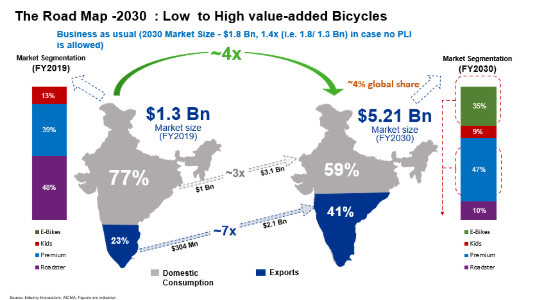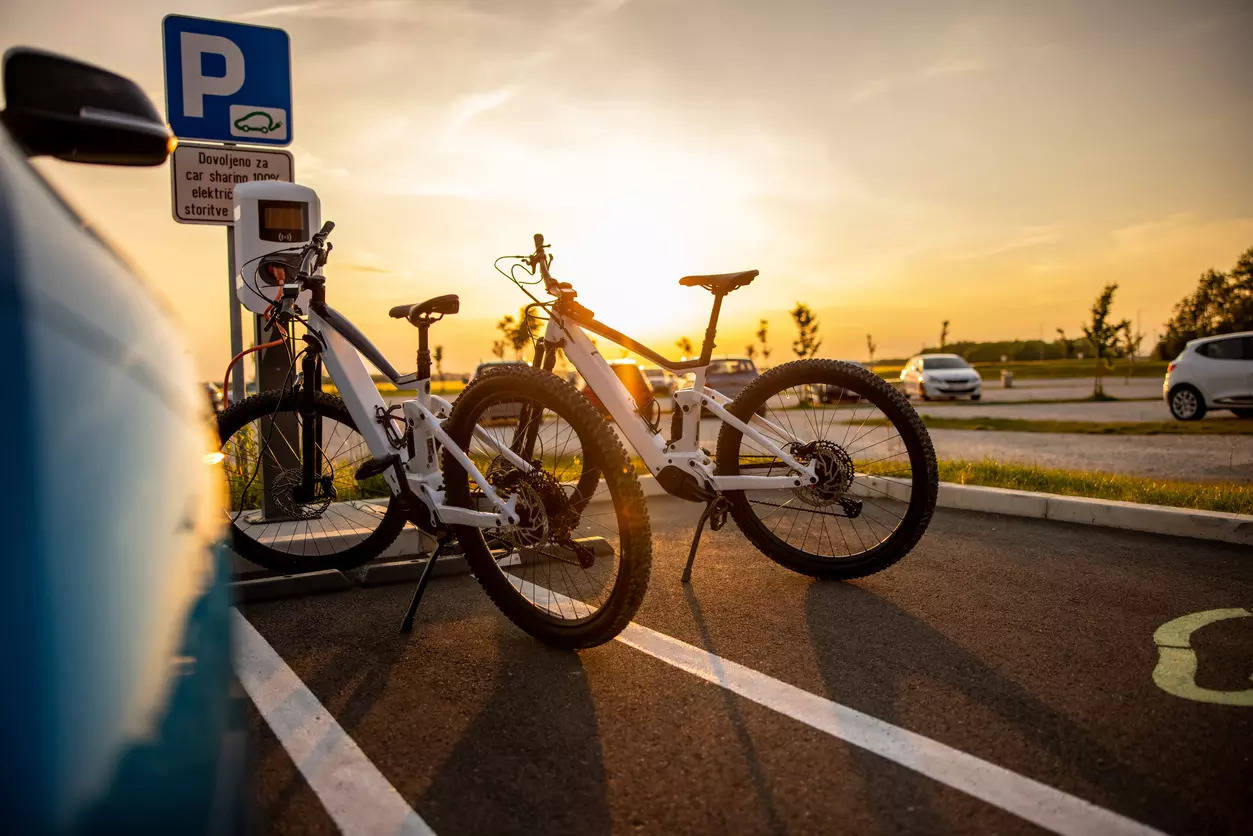Despite the critical importance of bicycles—both traditional and e-cycles—as a mobility solution capable of driving progress towards Net Zero emissions and promoting sustainable, eco-friendly, and healthy transportation, the bicycle sector faces several challenges. These include slow technological adoption, inadequate infrastructure, insufficient investment in manufacturing capabilities, a lack of stringent standardisation rules, and diluted competitiveness in terms of quality, Intellectual Property Rights (IPRs), and innovation.To address these issues and elevate the sector to compete on a global scale, particularly against Chinese counterparts, industry players have long advocated for a Production Linked Incentive (PLI) scheme from the government. Such a scheme could stimulate investments, drive technological advancements, and position the Indian bicycle industry as a competitive force in the international markets.
Dr. K.B. Thakur, Secretary General, AICMA (All India Cycle Manufacturers’ Association), reflects, “Innovation in the bicycle industry focuses on merging lightweight designs with attractive aesthetics, reliability, smarter technology, and enhanced features that prioritise cyclists’ safety. However, challenges such as cost accessibility and the readiness of safe cycling infrastructure remain. Collaboration between tech pioneers and urban planners is essential to unlocking the industry’s potential. Together, we can redefine micro-mobility and promote a shift towards sustainable active mobility.”
AICMA emphasises that introducing a PLI scheme for the bicycle sector could significantly benefit the sector with higher localisation of components, promote import substitution to the levels of 90% by 2030, empower MSMEs, creating additional employment opportunities, drive innovation, and scale growth and exports. AICMA also highlights on the need for advanced bicycle centre for testing and certifications.
“The cycling sector in India faces several challenges, starting with the lack of government investment in dedicated cycling infrastructure. The absence of separated cycling lanes—distinct from cars and buses—hampers consumer adoption and deters potential users,” says Sachin Chopra, Co-founder and CEO at Alphavector India Pvt. Ltd. Cities such as Amsterdam, Copenhagen, Berlin, and Paris demonstrate how robust cycling infrastructure can transform urban mobility, offering valuable lessons for India.
Interestingly, post the recent pandemic, Europe has fully embraced bicycles as a primary solution for urban mobility, largely driven by government investments in cycling infrastructure and regulations supporting the on-shoring of cycle manufacturing. “This has resulted in the establishment of bicycle assembly plants within the European Union. However, the core engineering and manufacturing of bicycle frames and components are still concentrated in ASEAN countries,” shares Chopra highlighting the potential for India.
He further adds, “The sector struggles with the slow adoption of modern technology. Limited investments in manufacturing capabilities over the past three decades have left the industry lagging, particularly when compared to global leaders like China. This gap underscores the urgent need for policy support and technological advancement to unlock the potential of bicycles as a sustainable mobility solution.” According to the AICMA, India faces a 15% cost disadvantage compared to China, primarily driven by higher raw material costs and logistics expenses.
“One of the major hurdles is the availability of raw materials, especially special grades of aluminium and carbon fibre, which are crucial for producing lightweight bicycles. Currently, over 99% of bicycles in India are made of steel, while countries like the US, Europe, and China have transitioned to aluminium-based bicycles to meet modern consumer demands,” shares Tushar Choudhary, Founder & CEO, Motovolt Mobility. “Introducing a PLI scheme for aluminium and carbon fibre bicycles could be a game-changer. Such a policy would incentivize capital expenditure, bolster local manufacturing, and enable India to compete with global players, particularly Chinese manufacturers.”
Choudhary emphasies that, “Aligning with global quality standards, adopting sustainable practices, and leveraging recycled materials can attract environmentally conscious markets. Collaborations with international players for joint innovation can further position India as a global hub for cycles and e-cycles.”
He adds, “Focusing on advanced battery technology, lightweight materials, and ergonomic designs is essential. Industry 4.0 practices, such as automation, IoT integration, and data-driven manufacturing, can enhance efficiency and consistency.” In addition to, alternative power sources like integrated solar panels, advanced battery systems including swapping capabilities, and modular design with scope of adding cargo compartments can completely change the dynamics of the cycling world.

Source: AICMA
Explaining that there is a need for establishing focused R&D hubs for cycles and e-cycle innovation, Chintamani Sardesai, Business Head, Nexzu Mobility, shares that there is a need for “partnering with technology firms and startups to drive cutting-edge developments” and encourage IPR creation to lead the market in patented designs and technologies.
Growth by Introduction of PLI by FY2029-30
Source: AICMA
The Indian bicycle market is projected to reach USD 4.5 billion by 2032, growing at a CAGR of 6.30% during 2024-2032. The e-cycle segment, though in nascent stage, is also growing rapidly, projected to capture 15–20% of the market within the next decade. In 2023-24, total bicycle sales in India reached 10.67 million units, marking a 2.4% increase from the previous year’s 10.42 million units.

